They're entertaining, but how do В鶹ԼЕД TV dramas reflect the real world?
Conversations around mental health and anxiety have become much more common, on and off screen, but according to , 49% of parents still felt that there was stigma around their child having a mental health problem.
To see if this stigma has made its way into the plotlines and characters of drama, presenter and NHS clinician Dr Ranj sat down to react to episode one of hit В鶹ԼЕД series Waterloo Road. Let's see what he has to say…
Dr Ranj: Hi everyone! Welcome to Dr Ranj Reacts. In this film, we'll be checking out some of the biggest moments from Episode 1 of Waterloo Road.
Dr Ranj: In this episode, it's the first day back at school for Izzi and she's feeling nervous about what lies ahead…
CLIP ONE
Donte: Iz, come on, big day today!
Izzi: Dad, I'm scared.
Donte: Come on. What are you like, ey? Who isn't on the first day of a new school, hmm? It's all part of the adventure, innit?
Dr Ranj: We've all been there. First day of school, you're frightened of absolutely everything, you're anxious - these are completely normal feelings. Just remind them that everybody else is feeling exactly the same.
Dr Ranj: Practically it might be a really good idea for a dummy run. Go with them to school on a non-school day, before they start, so they know they get familiar with the process. There are trusted grown ups in school, there are teachers, there may be counsellors, there may be school nurses that they can speak to.
Dr Ranj: Check in with your child every day. What were the good things? What were the fun things? What did you learn? But also, is there anything that’s stressing you out?
CLIP TWO
Danny: Ow!
Police officer: I need you to stop resisting arrest!
Police officer: He's been camping out in the boiler room for a few weeks, maybe even longer.
School counsellor: Danny clashed with his mum's boyfriend, apparently. Lockdown obviously heightened tensions.
Kim Campbell: Yeah, I can imagine.
School counsellor: Then the grandmother died - COVID - and things just broke down altogether. He were gonna leg it earlier, but then it all kicked off outside.
Kim Campbell: So this is his sanctuary.
Dr Ranj: We heard this time and time again during lockdown - when kids couldn't access school, their sanctuary was taken away from them.
Dr Ranj: A lot of people experienced grief, during the pandemic. A lot of the things you may see playing out in your child or young person could be a continuing expression of that grief. Just be mindful of that.
Dr Ranj: When we had our first lockdown, actually I found it relatively beneficial, because it made me slow down and have a bit of a clear out, to be honest. But as lockdowns progressed, it became more and more isolating. Fortunately I knew to reach out and speak to people and I had people I could do that with, but it's important for everyone to remember that that is there.
CLIP THREE
Kai: В鶹ԼЕДless, man.
Danny: Life gets in the way, innit.
Kai: So what are you gonna do now?
Danny: I don't know. Things are complicated at home.
Kai: Listen, I get it. My family are on my back 24/7. They do not stop.
Dr Ranj: I think that shows a really beautiful connection between two very seemingly different people, who are actually going through quite similar things. I love the fact that he was able to open up because of that.
Dr Ranj: As parents and carers we need to remember that we may not be completely across all the things that a young person is going through. They'll be feeling pressures from home, pressures from school, pressures from friends and peers, the media.
Dr Ranj: That's why I always say, it's important to be encouraging of your young person, but be led by them. You can take some of the cues from them.
Dr Ranj: I think it's really important to be mindful of any warning signs - a significant change in mood, not eating and drinking properly, not sleeping properly. These are signs that you need to open up that conversation and, if necessary, seek professional advice as well.
Dr Ranj: And that's all we've got time for on Dr Ranj Reacts, we'll see you again soon.
Starting a new school
In the first clip, Izzy is feeling anxious about her first day at a new school and whether she will make any friends. Her dad, Donte, gives her some reassurance - "It's all part of the adventure, innit?"
Dr Ranj sympathises with Izzy in this situation, "These are completely normal feelings," and encourages parents to remind their children that this is the case - many others will be feeling exactly the same way.
Ranj goes on to suggest that parents might want to take their child on a dummy run before they start school, so they have the opportunity to familiarise themselves with the journey. If they still feel anxious, help them to know the trusted grown ups in school - the teachers, counsellors or nurses who are happy to talk.
And lastly, Ranj stresses the importance of 'checking in'. "What were the good things? What were the fun things? What did you learn? But also, is there anything that’s stressing you out?"
Take a look at our article on school anxiety and refusal for more support.
Being a child post-pandemic
Clip two from Waterloo Road features a boy, Danny, who has been living in the school's boiler room for weeks. He is discovered, then chased and arrested by a police officer. It's revealed that Danny is a former pupil of the school who has run away from home after struggling in lockdown with difficult family relationships.
We heard this time and time again during lockdown - when kids couldn't access school, their sanctuary was taken away from them.
– Dr Ranj
Ranj remembers the first lockdown in 2020 as a relatively beneficial experience in his personal life, but, as it progressed, he began to feel isolated. This will have been true for many of our children - a sense of isolation and perhaps loss or grief. He goes on to say that parents might see a continuing expression of that grief playing out in their child and to be mindful.
As simple as it sounds, reaching out and talking to people if you're struggling and encouraging your child to do the same is the best course of action.
Take a look at this article for parents and carers to help build their child's resilience.
Opening up a conversation
The final clip in the film shows Danny in the lunch hall opening up to his friend Kai about his situation and his family struggles.
Dr Ranj says, "I think that shows a really beautiful connection between two very seemingly different people, who are actually going through quite similar things. I love the fact that he was able to open up because of that."
There are some things that your child is more likely to reveal to a friend or peer than to you, their parent or carer, and, as a result, you might not be completely across everything that they're going through. Because of this, Ranj encourages parents to let their child take the lead - "You can take some of the cues from them."
However, it is important to try and spot the warning signs of something more, such as a significant change in mood, not eating and drinking properly, or not sleeping properly. These are signs that you need to speak to your child yourself and, if necessary, seek professional advice as well.

More from Dr Ranj and Parents' Toolkit…
Dr Ranj Reacts to Never Ever Has My Child
We showed Dr Ranj some films from our intergenerational 'Never Ever...' series. He reacts to the films and offers advice to parents around mental health stigma.
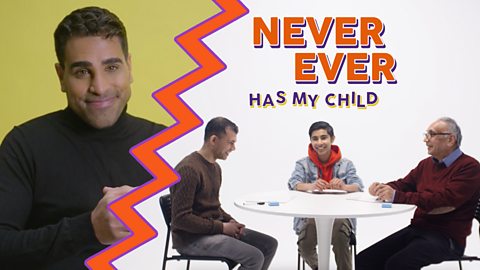
Dr Ranj Reacts to The Story of Tracy Beaker
Dr Ranj watches clips from Episode 1 of the CВ鶹ԼЕД classic - talking through issues the kids face and offering parents advice on dealing with similar problems.
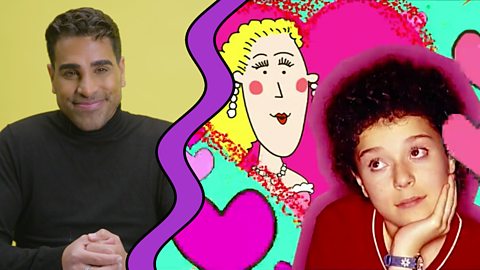
Let's Talk Child Mental Health with Dr Ranj and Netmums
Dr Ranj discusses stigma around child mental health with Netmums Editorial Director Jennifer Howze and Cathy Parsley, a Netmums Parent Supporter with expertise in child mental health
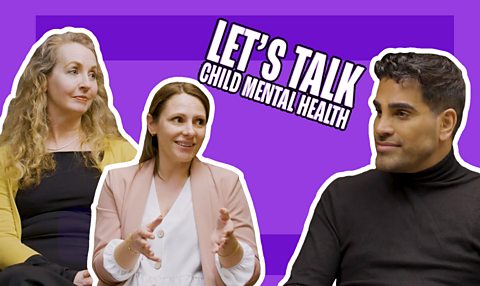

Waterloo Road is available to watch on В鶹ԼЕД iPlayer

More from В鶹ԼЕД Bitesize Parents' Toolkit…
Parents' Toolkit
Fun activities, real-life stories, wellbeing support and loads of helpful advice - we're here for you and your child.

Child mental health: Parents have their say
How do parents feel about mental health in 2022? Read about the results of our survey, in partnership with Netmums, here...
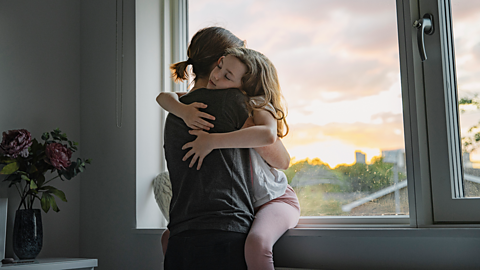
How to tackle anxiety with Dr Anna
Calming techniques to help parents and children manage their anxiety.
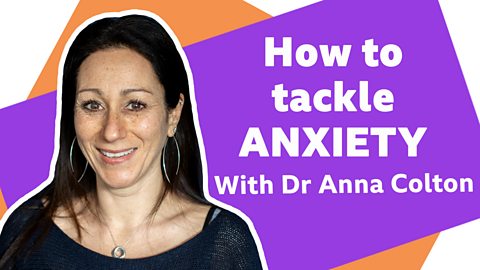
One in four children are bullied - what can parents do?
Psychologist Anjula Mutanda outlines how parents can spot signs of bullying, improve resilience and build confidence.
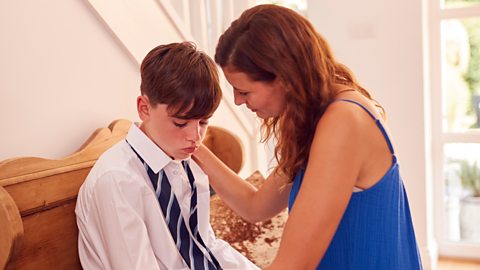
Dear Parents’ Toolkit… Should I help my child with their homework?
Real parents around the UK share their thoughts on homework. Is it better online? How much is enough? And how can parents help?
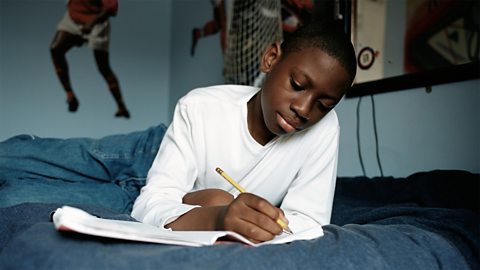
Christine McGuinness: Unmasking My Autism - advice for parents
What is autism 'masking' and how can it help you to understand your child?
